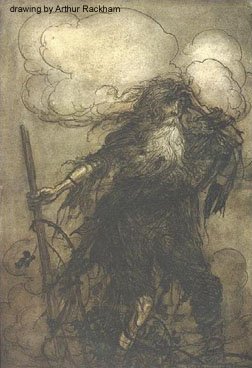
"can somebody loan me a cell phone?"
If Rip Van Winkle had stretched out for his twenty-year snooze in 1985 he would just now be rubbing the sleep from his eyes. What a new world he would see. He would barely know about unleaded gasoline and I'm sure he would be surprised to note that it costs upwards of two dollars a gallon. He would still think that OJ Simpson was famous for playing football and that Jesse Ventura was a wrestler and Arnold was a movie star.
In 1985 there was still a Berlin Wall and the Soviet Union was The Evil Empire. Apartheid reigned in South Africa. We still have an Evil Empire but the bad guys have changed. We don't fight wars against countries anymore, but against ideologies and religions and solo villains and secret intangible organizations.
In 1985 almost nobody had heard of AIDS until Rock Hudson died of it. Now oldRip wakes up to a world where 25 million have died of the disease and 50 million more are infected with the virus, while in the mean time the drug companies are devoting their attention to Viagra, Cialis and Levitra. No, Rip, those aren't James Brown's back-up singers. Somebody tell him what erectile dysfunction is and why it's more important to fight than AIDS.
Rip would be startled to find that since the War on Drugs didn't work out so well, the government has declared a new and equally absurd War on Terror. Let's hope that the terror war doesn't do the same thing for terrorists that the drug war did for drugs. The cocaine is cheaper now and the pot is stronger.
Since 1985 cellular phones have gone from brick-sized lumps that needed a briefcase sized battery, to something smaller than the size of a pack of cigarettes. You know, cigarettes, those things that used to cost a dollar and and now cost eight bucks a pack? Old Rip might as well save his money anyway because now he can't smoke in any tavern in NYC.
In 1985 Apple had just introduced the Macintosh, which was the first personal computer with a mouse and a graphic user interface. Now almost every office is populated by PC's and computers in general have gone from odd and novel toys that you wondered, What is this thing good for but playing solitaire?, to an appliance as ubiquitous as a television or a telephone that millions of people use every day in thousands of different ways in their lives and livelihoods. In a blink of the historical eye, we have gone from not knowing what to do with these machines to not knowing what we would do without them.
Rip wouldn't have a clue what an iPod was, or a Palm Pilot or a Powerbook. When he went to sleep AOL hadn't been invented and the internet was just something a few scientists and geeks knew about. Now, you are nobody in this world unless you have a www in front of your name. Someone will have to take Rip by the hand and explain to him what a web site is.
In fact someone would have to explain a lot of things to him, things like Chyrnoble, Iran-Contra and The Human Genome Project. He might ask what Nintendo was or why the World Trade Center was no longer there, or why it takes two hours to board an airplane. But there is an upside. Rip can now take upskirt shots with his new mini cellphone/camera that plays MP3s and shows television and hooks to the internet wirelessly and also makes a fine vibrating dildo. (ladies, you know how this works, you set you cell on vibrate and slip it into your jeans and then call yourself from a pay phone.)
The Poet's Eye can barely focus on our changing world because it moves so fast. The Poet's Ear hears them playing nine-pins on his iPod. It sounds like the thunder of change and technology. I think I'll take a nap. Wake me in about twenty.
“God knows,” exclaimed he, at his wit’s end; “I’m not myself—I’m somebody else—that’s me yonder—no—that’s somebody else, got into my shoes—I was myself last night, but I fell asleep on the mountain, and they’ve changed my gun, and everything’s changed, and I’m changed, and I can’t tell what’s my name, or who I am!” from Rip Van Winkle by Washington Irving.